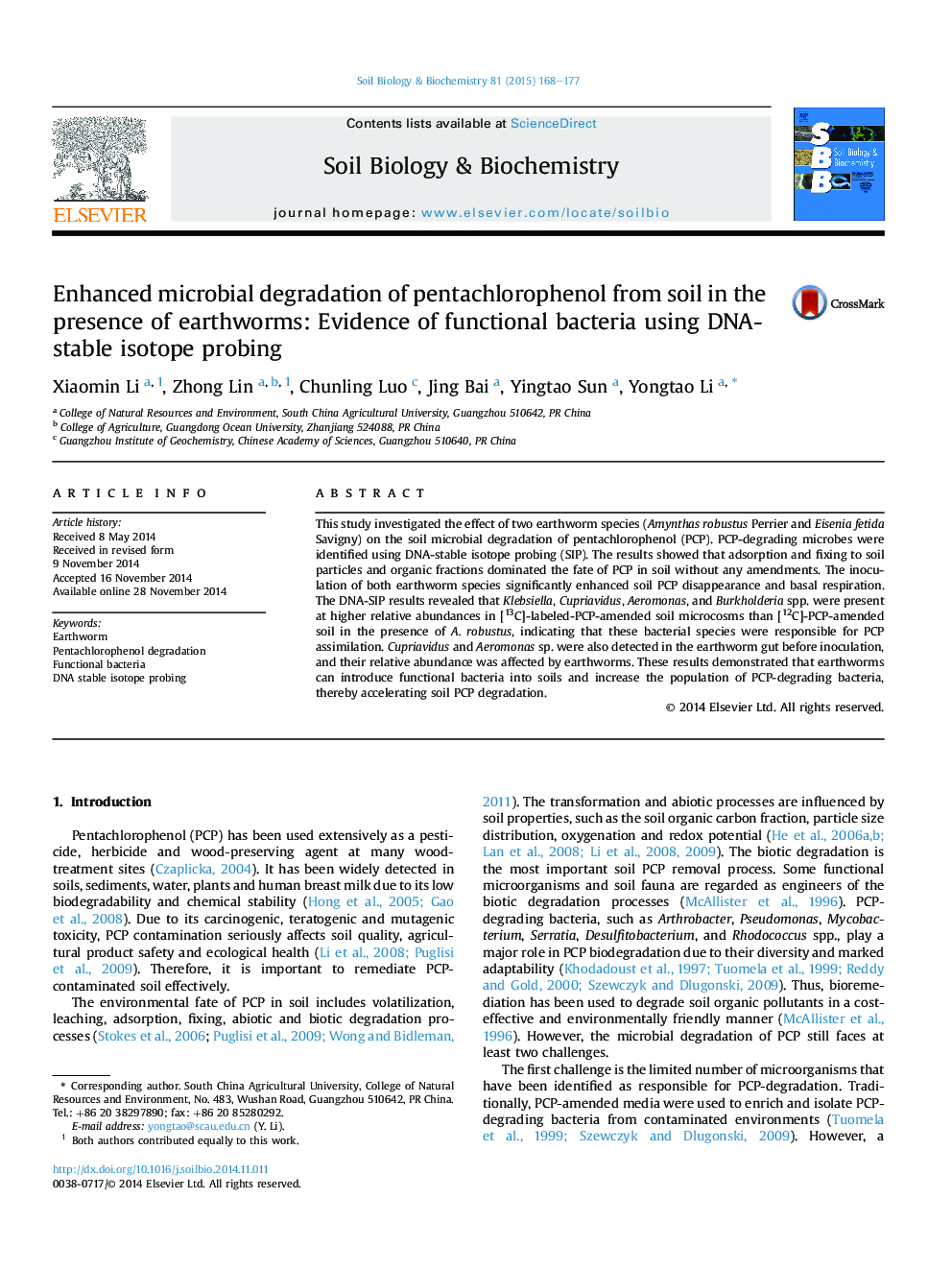| Article ID | Journal | Published Year | Pages | File Type |
|---|---|---|---|---|
| 2024426 | Soil Biology and Biochemistry | 2015 | 10 Pages |
Abstract
This study investigated the effect of two earthworm species (Amynthas robustus Perrier and Eisenia fetida Savigny) on the soil microbial degradation of pentachlorophenol (PCP). PCP-degrading microbes were identified using DNA-stable isotope probing (SIP). The results showed that adsorption and fixing to soil particles and organic fractions dominated the fate of PCP in soil without any amendments. The inoculation of both earthworm species significantly enhanced soil PCP disappearance and basal respiration. The DNA-SIP results revealed that Klebsiella, Cupriavidus, Aeromonas, and Burkholderia spp. were present at higher relative abundances in [13C]-labeled-PCP-amended soil microcosms than [12C]-PCP-amended soil in the presence of A. robustus, indicating that these bacterial species were responsible for PCP assimilation. Cupriavidus and Aeromonas sp. were also detected in the earthworm gut before inoculation, and their relative abundance was affected by earthworms. These results demonstrated that earthworms can introduce functional bacteria into soils and increase the population of PCP-degrading bacteria, thereby accelerating soil PCP degradation.
Related Topics
Life Sciences
Agricultural and Biological Sciences
Soil Science
Authors
Xiaomin Li, Zhong Lin, Chunling Luo, Jing Bai, Yingtao Sun, Yongtao Li,
